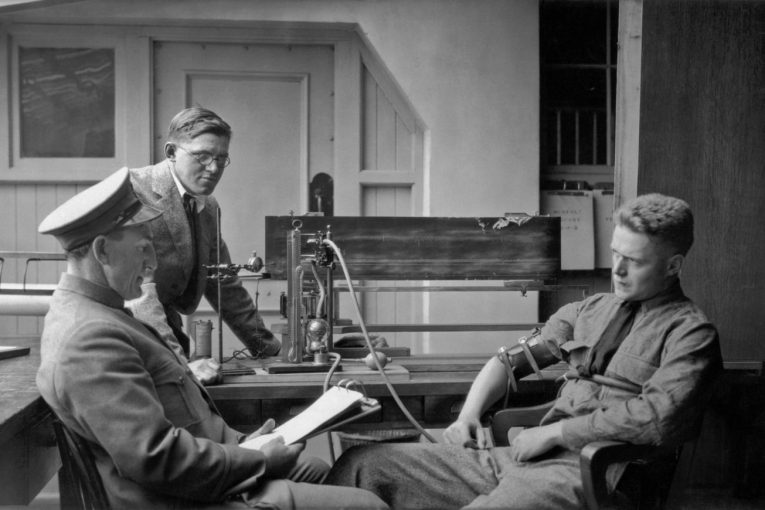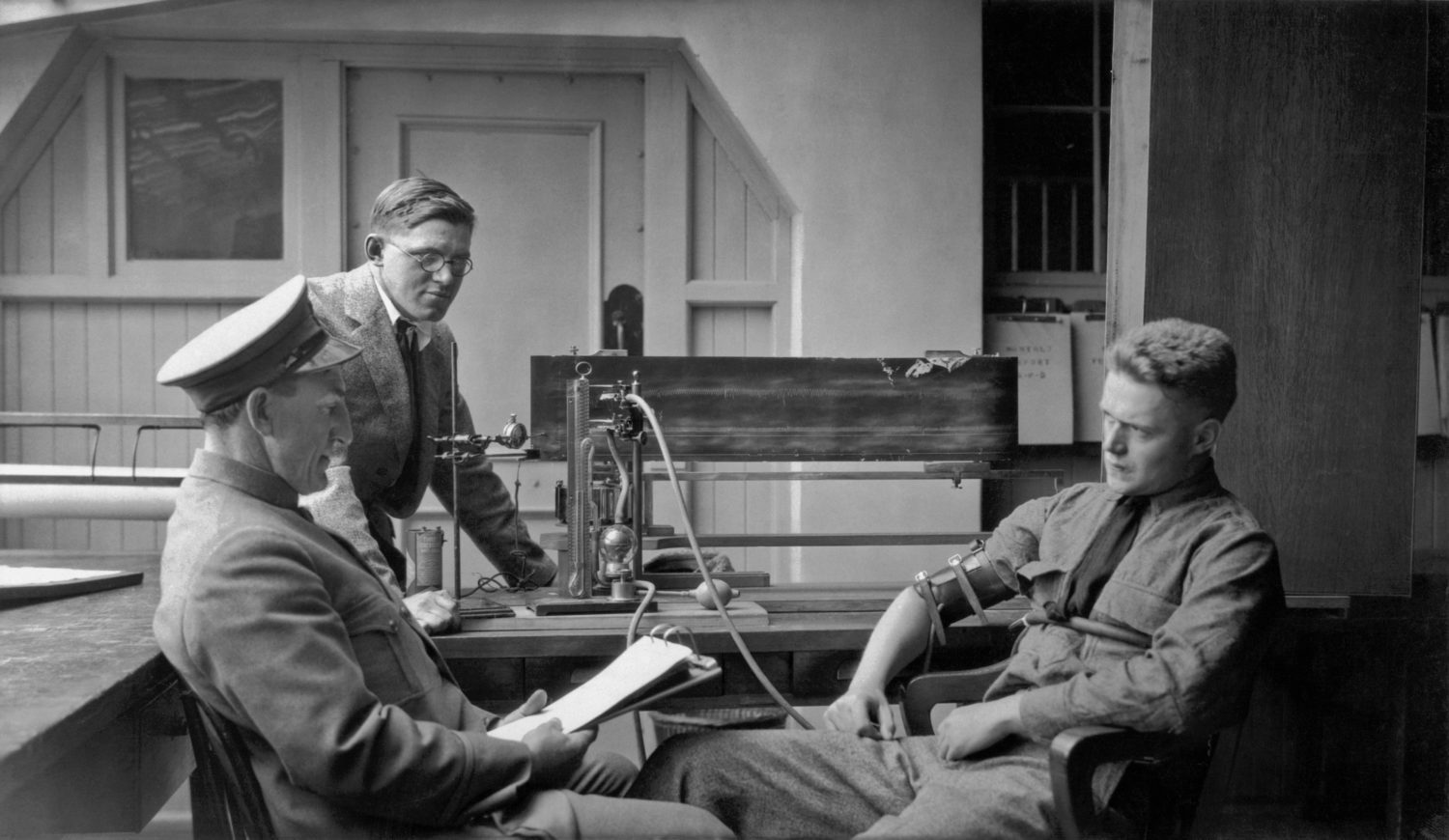

By Kyle C. Berry
In 1997, four Navy sailors in Norfolk, Virginia were arrested for the rape and murder of a young woman. The men were trained to endure stressful situations, but they could not withstand the long, relentless police interrogation that followed. All four were innocent, but all four confessed, and all four were convicted. One of the men became so convinced of his own guilt that he testified against the others and wrote letters of apology to the victim’s family.
DNA recovered from the victim did not match any of the sailors, but it did match another man who confessed to the crime and said he acted alone, and who was already in prison for sexual assault. Nonetheless, it took more than 20 years for the Norfolk Four, as they came to be known, to receive full pardons, and their case, the subject of a PBS Frontline documentary, drew national attention to the widespread problem of false confessions.
Why would anyone, let alone trained military personnel, confess to a crime they did not commit? Their interrogations were models of police coercion. Marathon questioning throughout the night. Threats of the death penalty if they did not admit guilt. And a deception designed to convince them not only of certain conviction, but also that, regardless of their memory, they were guilty. Police gave each man a polygraph exam and then lied about the results, telling them they failed when they had passed. It was only after this lie, told separately to all four, that each man confessed to a crime that none of them committed.
Twenty-two years later, one state Supreme Court has now recognized “how falsified polygraph results can coerce a suspect into making a confession,” and ruled that such deception violates the right against self incrimination. In an Oct. 29 ruling, the Hawaii Supreme Court said that fake lie detector results are necessarily coercive and that, if they are used in interrogations, any resulting statements must be excluded from trial.
The Hawaii case involved longtime wrestling coach Keith Matsumoto, who was accused of groping a 14-year-old girl at a tournament in 2012. Matsumoto denied the conduct and the results of a polygraph were inconclusive. But the detective who gave the exam told him he failed and continued the interrogation, “exuding confidence” that Matsumoto was guilty. Eventually, Matsumoto said that while he could not remember touching the girl he must have done so, perhaps as a “‘good job’ slap” on the butt in a moment of “weakness.” That admission was later used to obtain his conviction at trial.

The Hawaii Supreme Court tossed the confession and overturned the conviction. “Extensive scientific literature and numerous documented cases have demonstrated the coercive nature of falsified polygraph test results,” the court wrote. “They can change a suspect’s beliefs, pressure a suspect to confess, and even cause the suspect to believe they committed the crime when they did not.” That is, the court said, “false polygraph results may psychologically prime an innocent suspect to make a confession.”
The decision appears to be the first to fashion this bright-line rule, and one immediate question is whether other courts will follow suit. It’s not as though the fake polygraph ploy fell into disuse in the decades since the Norfolk Four went to prison. In 2009, police in Sacramento staged a fake lie detector test, complete with body patches connected to wires and fabricated written test results, to pry incriminating statements from a murder suspect. Noting that “cases from California and federal courts validating such tactics are legion,” a California appellate court approved the ruse and upheld the resulting conviction.
In 2013, a Chicago Tribune investigation found that the Chicago Police Department routinely used its polygraph unit to obtain false confessions, leading to wrongful convictions and lawsuits costing the city millions of dollars.
“What makes the polygraph particularly powerful is that it’s couched in science,” Saul Kassin, a psychology professor at John Jay College of Criminal Justice in New York, told the Tribune. “When they say you failed the polygraph, and you think it’s infallible, it has a very strong effect.” Lie detector tests may be inherently unreliable, but that doesn’t matter if people believe that they work.
And many of the concerns about the coercive power of fake test results apply with equal force to other forms of police deception—common tactics that courts have condoned while applying unrealistic standards for what constitutes a “voluntary” statement.
Three years after its decision in Miranda v. Arizona, the U.S. Supreme Court under Chief Justice Earl Warren again addressed police interrogation in the 1969 case Frazier v. Cupp. Martin Frazier was arrested on suspicion of murder. When Frazier denied wrongdoing, police deployed a common trick: they told him, falsely, that a person he had been with that night had already talked to the police and confessed to their involvement. With Frazier still reluctant to talk, one officer told him “you can’t be in any more trouble than you are in now,” and police ultimately obtained a full confession.
In a unanimous decision, the Supreme Court said the confession was voluntary. Police deception was relevant to the question of coercion, the Court said, but “these cases must be decided by viewing the ‘totality of the circumstances,’” of which any deceptive tactics are only a part. Since then, as a 2009 white paper on false confessions in the Journal of Law & Human Behavior observed, the Frazier decision’s “totality of the circumstances” test “has been interpreted by police and the courts as a green light to deception.”
But like fake test results, police lies about the existence of evidence against the accused, including lies that an innocent person would know are false—an eyewitness saw you, a video camera recorded the whole thing, drugs were found in your car—make people believe that conviction is inevitable, and that the last, best thing they can do is cooperate, tell authorities what they want to hear, and even falsely confess.
It’s impossible to know how many false confessions have been the product of perfectly legal police deception, but any known cases are only a tiny fraction. A Journal of Law & Human Behavior white paper finds “strong support for the proposition that outright lies can put innocents at risk to confess” in “one hundred-plus years of basic psychology research.” One recent article found that at least 23 percent of false confessions in exoneration cases were in part the product of police lies that did not rise to the level of misconduct under current case law.
That courts have overlooked this reality for so long betrays a disconnect not just between the law and social science, but between the law and the very nature of police interrogations. Allowing police to lie and deceive assumes that they are engaged in good-faith investigation and genuinely interested in pursuing the truth, the cost of which may be less-than-honorable tactics. But interrogations are not about fact finding. Rather, the “single-minded purpose of interrogation is to elicit incriminating statements, admissions, and perhaps a full confession in an effort to secure” convictions. Interrogations do not weed out the innocent; they often target them.
And so the more salient question goes beyond polygraph tests, and asks whether Hawaii’s Matsumoto decision will spark increased scrutiny of police deception in all forms, starting the path toward a jurisprudence that gives real meaning to the rule against coercive interrogations.
Originally Published in the Appeal.

